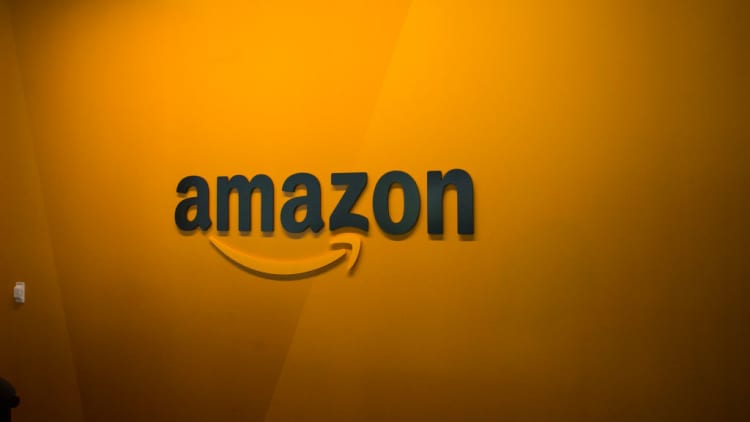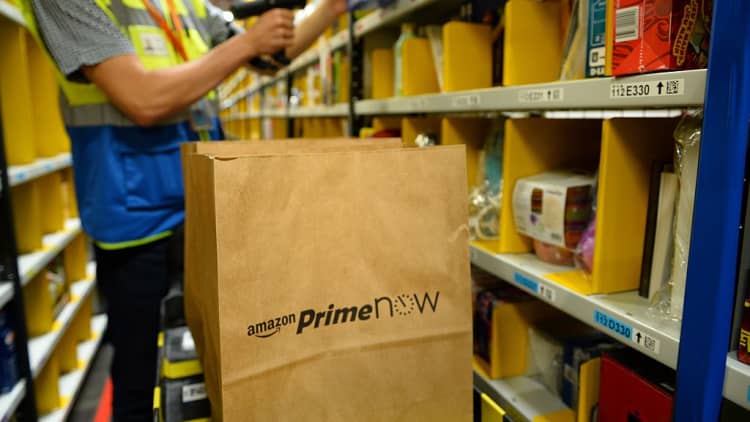
Before it was Amazon killing the retailers. Last week it was Amazon disrupting appliances. Now there's a broader concern: Amazon has the potential to disrupt the middleman in general, particularly those that work in the $7 trillion business-to-business (B2B) space.
Here's the issue: If you don't make the object you are selling, or don't have some sort of intellectual property, or solve a pain point for a customer, then you're just a middleman, and you are increasingly more vulnerable. The concern is that these middlemen will start losing volume because sales in general are going to the internet and because it's increasingly difficult to get pricing.
In 2005, Amazon bought a business called SmallParts.com. No one paid much attention to it, not even after 2012 when Amazon renamed it Amazon Supply with the idea of supplying industrial and commercial customers.
That started to change in 2015, when it was rebranded Amazon Business. The much larger goal: to be a supplier to the entire B2B community, a business that encompasses much more than just the industrial space.

Amazon Business now has 300,000 registered corporate buyers, according to Crain's, and recently surpassed $1 billion in sales, according to Reuters.
How serious is this as an issue? It's already affecting a specific class of middlemen: Industrial distributors who sell screws, pumps, fasteners and other parts for industrial America, companies like W.W. Grainger and Fastenal who have been profitable for many years serving the B2B industrial community.
But that is now changing. Last week, Goldman Sachs put out a note to clients entitled "Distributors Disrupted" where it claimed that "the value proposition of the industrial distributor is not keeping pace as new entrants like Amazon are disrupting traditional models. As a result, we see $130bn of industrial distributor TAM [total addressable market] on the line."
It has a sell rating on Grainger (GWW), which sells industrial and security supplies like lighting and electrical products and power and hand tools, as well as Genuine Parts Co. (GPC), a distributor of automotive replacement parts, because of their susceptibility to price competition and lower margins.
Grainger is already familiar with the Amazon effect. Its earnings declined in the first quarter because it has had to make price cuts to compete with cheaper competitors on the internet, mainly Amazon.
But the rapid growth of Amazon Business is now attracting significant attention. After volumes were shakier than expected in the second quarter, Susquehanna lowered its price target for Grainger $20 to $181 last week, citing "heightened anxiety about the potential negative impacts of rising online competition from Amazon and other players."
That competition could significantly affect prices and margins. Goldman found that Amazon and Grainger both carried 98 of 100 products that Goldman sampled. Of that, Grainger's prices were at a 55 percent premium to Amazon. It also found that Fastenal was at a significant premium of 49 percent.
Could Amazon get even more aggressive and start buying in the B2B space? It's certainly not out of the question. Here's Gabelli & Co. analyst Justin Bergner last week: "We would not rule out an acquisition of Grainger by Amazon if such a deal were embraced by both parties. It would be a good way for Grainger to leverage its e-commerce capabilities and scale within Amazon's platform, while retaining leadership."
(Amazon and Grainger declined to comment.)
Still, the Amazon juggernaut is not unstoppable.
Small companies may use Amazon more because price is the most important factor for them. But larger companies will still want relationships with companies like Grainger because the larger customers place a higher value on receiving expertise and customer service.
That was the point Morningstar made last week, when it said there was "too much pessimism" around Grainger's loss of pricing power, noting the company "is entrenched within many of its larger customers' operations, and the firm's ability to manage large, complex accounts and provide inventory management services support some degree of pricing power."
That added value isn't going to go away anytime soon, and until Amazon finds a way to duplicate that hands-on service, some of this business will be beyond its reach.
WATCH: An inside look at how Amazon Prime Now delivers food and household items in less than two hours



